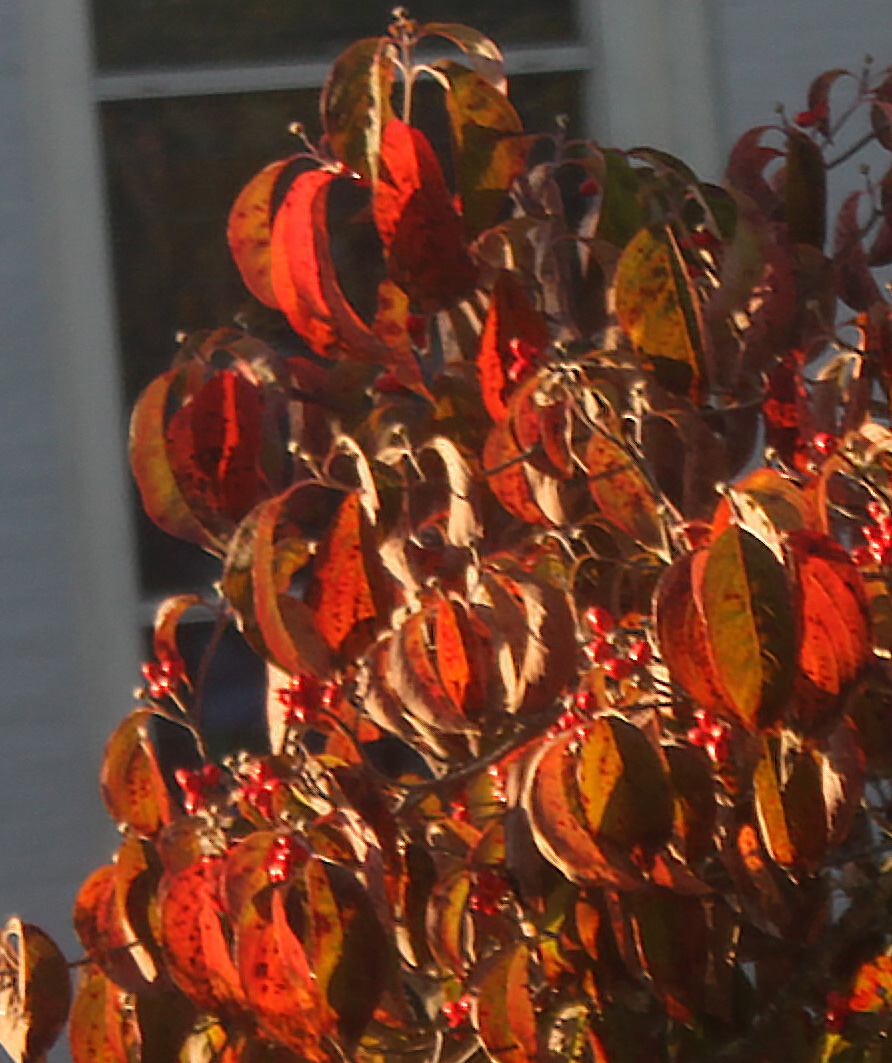
“When When it’s over, it’s over, and we don’t know any of us, what happens then. So I try not to miss anything. I think, in my whole life, I have never missed The full moon or the slipper of its coming back. Or, a kiss. Well, yes, especially a kiss.” -Mary Oliver (2010). “Swan: Poems and Prose Poems”, p.42, Beacon Press
As autumn begins to make its royal showing here in the Northeast, it’s a good time to celebrate the brilliance, the beauty, and the tender reverence of Mary Oliver’s poetry. “Try not to miss anything” was one of her instructions. It may sound a bit like FOMO (fear of missing out), but for Oliver, it’s all about quality, not quantity.
Her practice of present-moment awareness, evident in her poems about the natural world, has led some to call her “the poet of awe.” In her poem What Can I Say, for example, she writes, “The song you heard singing in the leaf when you were a child is singing still.” While some critics find her work to be lacking in complexity, others of us have folded her writings into our spiritual disciplines, prayer, and faith lives, precisely because of their freshness and simplicity. Oliver’s talent for viewing the world with the eye of the child and the reverence of a devotee makes her poetry resonant and visceral. She tries not to miss anything and invites us to do the same.
Pick up any Mary Oliver poem this month and experience her commitment to careful observation and deep listening. In fact, her definition of prayer is paying attention. She finds God through being truly present, especially to the natural world, leading her to experiences of wonder and moving the reader to compassion and gratitude. In Thirst, she prays, “Oh Lord, love for the earth and love for you are having such a long conversation in my heart.”
It is no mean feat to be fully present, so engaged and intimate with a subject, to truly see it — and to see yourself in it. To truly see it — and to see God in it. This is the secret that contemplatives and mystics know. And therefore the rest of us practice prayer and contemplation for a glimpse or two. Oliver asks in Invitation, “Oh do you have time / to linger / for just a little while / out of your busy / and very important day / for the goldfinches…” The line breaks seem to echo the start-stop ways in which we tend to live our daily lives, charging along and missing an abundance of beauty along the way.
We are surrounded by beauty and opportunities for thanks. And all we need to do is stop and stand in awe.
Her poems invite us to begin to slow down and focus on small details, as in The Summer Day, where she asks, “Who made the grasshopper? This grasshopper, I mean — the one who is eating sugar out of my hand…” Not just any grasshopper, but this very one, right here. If we were to stand still and look at it (or a tree, a river, tuft of moss, a goose or dog or wave) long enough, it might teach us something about prayer, too.
With her emphasis on presence and wonder, Mary Oliver models for us a posture of receptivity, which is essential in the spiritual life. We are called to live into our full humanity as made in God’s image — actively seeking mutual receptivity and mutual presence in the divine dance of living. Not just to observe, but to participate in what we observe and, in doing so, to receive its gift: to witness God in all things and all things in God.
This fall, let us practice noticing those things that point us to the presence of God. We are surrounded by beauty and opportunities for thanks. And all we need to do is stop and stand in awe.
So, practice silence. Practice paying attention. Practice observation as prayer. Practice listening for another voice. Dispose yourself to the mystery in front of you and allow yourself to experience awe as mutuality.
Mary Oliver’s invitation is to treat the details of your day as blessing. May we follow her example by remembering to be astonished. May we learn gratitude through loving this world and seeing God in all of it. May we experience the presence of divine love in all the blessings and sufferings that compose our lives. And may we bring our questioning spirits to the woods or fields or parks or porches, “with our arms open,” in a reverent search for oneness.
Blessings and peace,
Dr. Kathy Bozzuti-Jones and the Faith Formation and Education team
